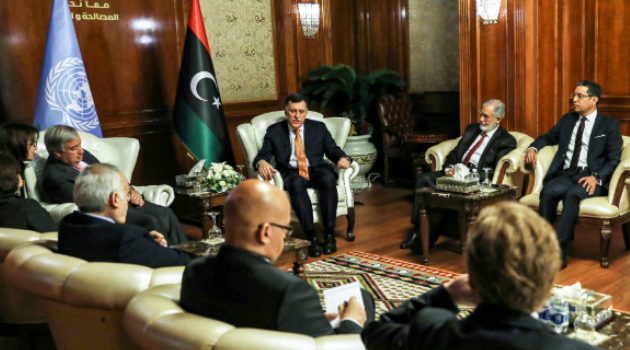By Tarek Megerisi.
Libya’s escalating war is changing political realities, necessitating a new framework for conflict resolution and power sharing.
Khalifa Haftar’s march on Tripoli on April 4 was a paradigm-shifting event whose importance remains lost on the global diplomatic community.
Haftar’s actions closed the door on the Libyan Political Agreement (LPA) and on attempts to amend it, including a series of negotiations between Haftar and Government of National Accord (GNA) Prime Minister Fayez al-Serraj and the resulting ill-fated Abu Dhabi deal.
A new landscape is emerging in Libya, forcing policymakers back to the drawing board for a solution.
Read full article here from the Carnegie Endowment for International Peace





